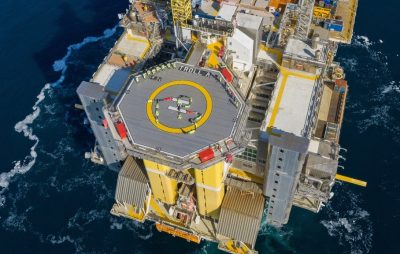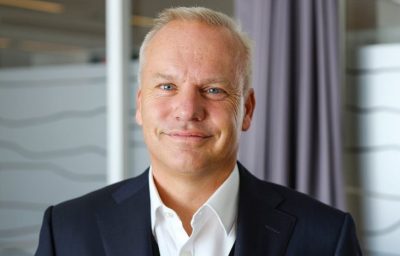Norway’s state oil company Equinor, which reported record high quarterly profits on Wednesday, was quick to boast that it expects to pay NOK 130 billion (USD 15.6 billion) in taxes this year. Equinor CEO Anders Opedal clearly wanted to stress the company’s contribution to the Norwegian economy, at a time when its oil and gas are unpopular because of how they contribute to climate change.

PHOTO: Equinor/Jan Arne Wold and Elisabeth Sahl, Woldcam AS
“We expect to pay NOK 130 billion in taxes from the Norwegian continental shelf for 2021,” said a clearly proud Opedal, who held a press conference on the results Wednesday morning. “That’s 10 percent of (an annual) Norwegian state budget.”
After being harshly criticized last year for losing NOK 200 billion on climate unfriendly projects in the US, Opedal, who took over as Equinor’s new CEO just a few months later, was glad and relieved to report strong profits this year, especially after reporting its worst results ever last year as oil prices plummeted during the pandemic. The company’s adjusted third-quarter result before taxes this year amounted to USD 9.77 billion, equal to more than NOK 85 billion and much higher than the NOK 70 billion expected by analysts.
Much of the money now flowing into Equinor (and eventually Norway’s treasury), however, has been sparked by record high prices for Equinor’s gas. The sheer size of the profits can backfire from a public relations point of view, since they come at the expense of millions of European consumers who need Norway’s gas at a time of record-high electricity rates as well. The money is also being made on the now-controversial fossil fuels that contribute to climate change.

Opedal himself confirmed that the price of Equinor’s oil is up 80 percent compared to the third quarter of last year. Equinor is also earning four times as much on its gas, the price of which is now 370 percent higher than at this time last year.
“There’s great need for gas through the winter, and not least gas from Norwegian fields,” Opedal said, “so we expect that gas prices will continue to be strong.” He stated in the company’s press release Wednesday that Equinor’s “highly profitable” offshore installation Troll Phase 3 “was brought on stream and Martin Linge (another offshore platform) has been ramping up, both supplying gas to Europe with low emissions from production.”
It all means that Norway’s fossil fuel industry is more lucrative than ever, but also unpopular and even a source of embarrassment for many in Norway who want to drastically cut Norway’s own emissions. They include supporters of the Socialist Left, Greens, Reds and Liberal parties, which advocate halting all further oil exploration, especially in the Arctic, and to start reducing oil production. They were also highly critical to how Equinor and other oil and gas companies were granted tax relief last year to maintain exploration and production activity during the Corona crisis.
Opedal, under fire from environmentally and climate-minded Norwegians and others concerned about climate change, counters that Europe “is shrieking after our gas.” He claims Equinor “has an important role as a reliable energy supplier to Europe,” adding that the company is therefore seeking “all possibilities to increase exports.” He can find comfort, meanwhile, in surveys showing that a majority of the Norwegian public still support the country’s oil industry, because of the jobs it creats.
Equinor’s profit jump comes just days before officials from all over the world will meet in Glasgow to try to agree on new means of further cutting carbon emissions to reduce global warming. Many of them view companies like Equinor as contributing to the climate crisis. Opedal claims Equinor can also be part of the solution, since it’s also investing in renewable energy projects, including offshore wind energy.
Those divisions of the company, however, are still recording declines in revenues and losses. Its major Empire offshore wind project in the US is facing more delays. Opedal sought to brighten Equinor’s “green” efforts by claiming that Equinor is still in the investment phase of renewable energy projects: “Those expenses have to be subtracted, therefore we get a negative result in the renewable segment. We expect that in the quarters to come, until the renewable segment will be even bigger and stand on its own.”
Equinor has announced plans to invest around NOK 200 billion in renewable and low-carbon projects by 2026, as much as it lost in the US. It will invest another NOK 200 billion by 2030. Its current wind power production, though, declined in the third quarter, because it was simply less windy than normal during this last summer and autumn.
newsinenglish.no/Nina Berglund

